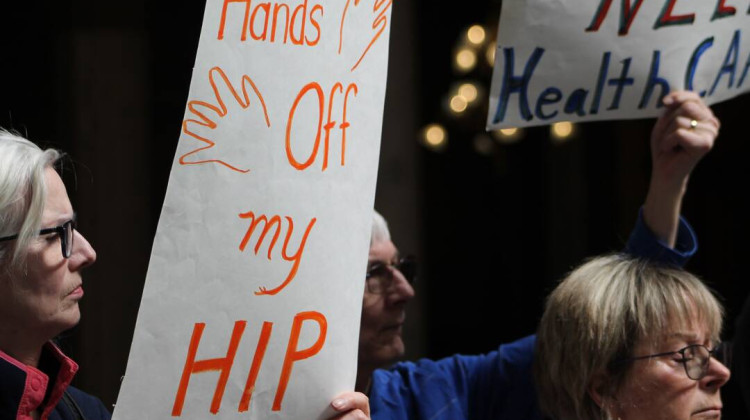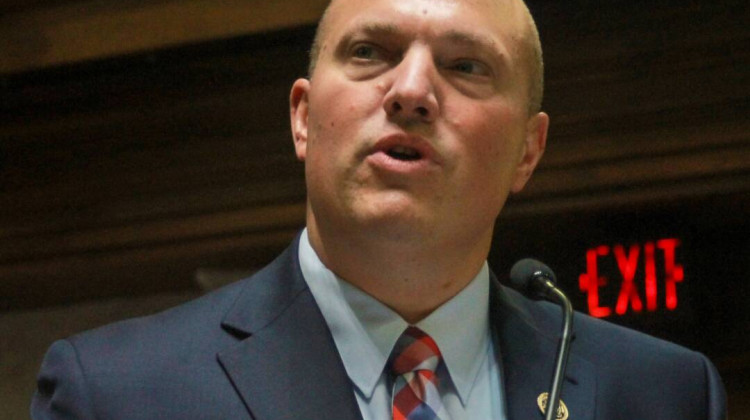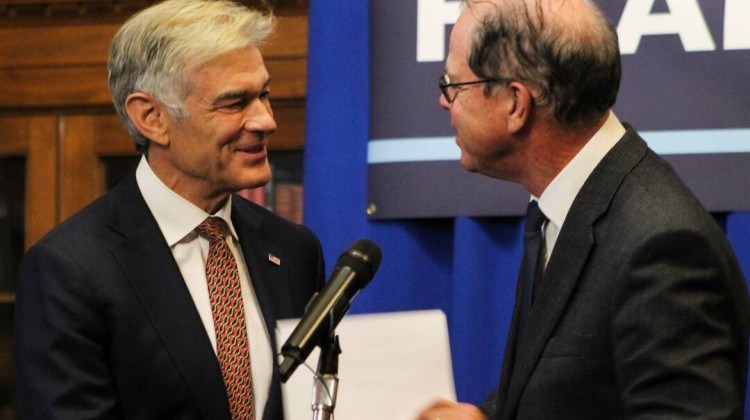Charlie Stewart is tall, 25 years old, and broad-shouldered. He's wearing a gray polo shirt and slacks, and starts each morning with a protein shake.
Every Tuesday you can find him walking the narrow linoleum halls of the emergency department at Mount Carmel West in Columbus, Ohio.
"I usually set up," Stewart says, describing his morning routine. "I get on and look at people's charts and find out if there are any overdoses or anyone with addiction related services that they need here."
Stewart works with doctors and nurses, but he's not in this position thanks to a degree in medicine or social work. He's trained to work with patients and has experience in peer mentorship. He also has a past of drug addiction.
It's a new experiment popping up in emergency departments across the country: Hospitals are hiring former addicts to connect patients with the support they need to get into treatment for addiction.
Stewart says when he meets a new patient, he's listening for something specific.
"I don't want to put any words in their mouths. I don't want to give them any ideas, I want them to have an idea," Stewart says. "Like, Hey, I'm thinking about getting clean, I'm thinking about going to detox.' And it's like I can help you do that.'"
As for his own addiction, "It really started pretty young," Stewart says, "drinking, partying a little too much."
Stewart says he abused a number of drugs, including opiates. Now that he's been in recovery for a number of years, he's become a powerful ally to the medical staff here. They can treat addicts with lifesaving drugs, but Stewart has walked in their shoes.
"I've lived it, and I know the struggle when I see these people, and it's not that they have a moral deficiency or anything like that," he says. "They're just sick and they need help."
Before Stewart began working at Mount Carmel West, it was hard for staff to make a personal connection with someone struggling with opiate addiction. Brian Pierson, the regional director of outreach at Mount Carmel, says staff would see the same patients overdosing over and over again, and doctors could do little more than offer them Naloxone, a drug for reversing an overdose.
"Either they would be discharged because there's nothing more that we can do for them, or they would be discharged because they've decided they're going to leave and there's nothing we can do to keep them here," Pierson says. "We can't force them to stay."
Now it's Stewart's job--hospitals sometimes refer to the role as a "peer support coach"--to put these patients in touch with detox centers or long term treatment facilities and link them with resources such as food stamps, housing and transportation.
His position builds on a role commonly referred to as the community health worker. Because Stewart understands addiction, he can act as a liaison between his peers and the healthcare system.
Pierson says that's exactly what happened when Stewart first came to interview for the job.
He heard a patient had come in with an abscess on their neck, Pierson says, "and Charlie made the recommendation, Hey, you know that's commonly seen in somebody who's suffering from opiate use disorders.'"
The nurse returned to the patient, and after another assessment, it turned out Stewart was right.
"Having Charlie in that space at that time helped identify something that might not have been identified otherwise," Pierson says.
Hospitals administrators say the Mount Carmel program has been running for four months, and has helped 10 people enter long-term addiction treatment.
"He tells a story of hope, [that] this is not a character flaw," Pierson says. "If I go through treatment I can be successful, I can recover and I can look and sound like Charlie, who's standing in front of me now telling his story in a really powerful way."
This story was produced by Side Effects Public Media, a news collaboration covering public health.
 DONATE
DONATE









 Support WFYI. We can't do it without you.
Support WFYI. We can't do it without you.